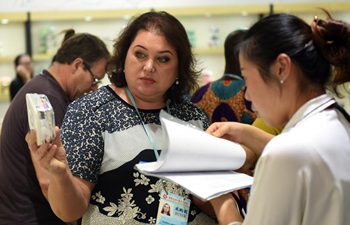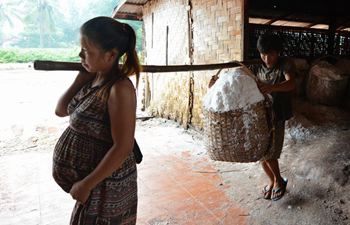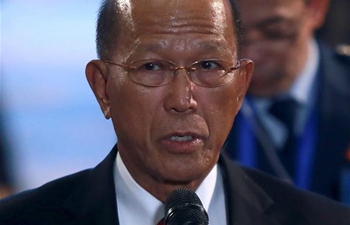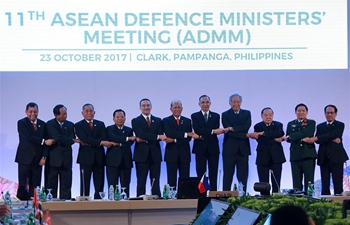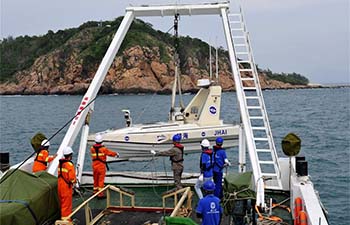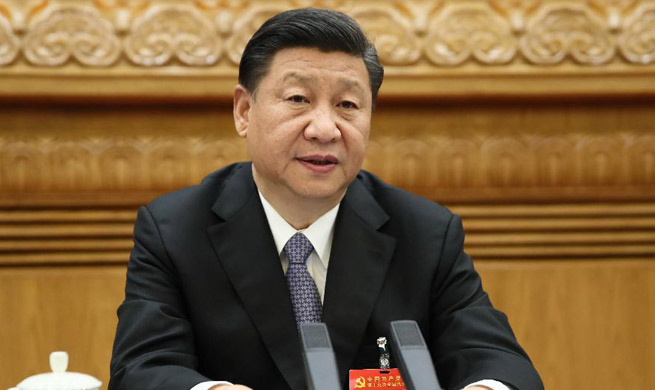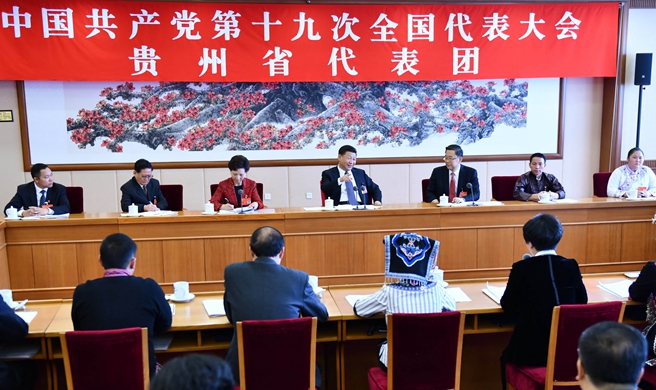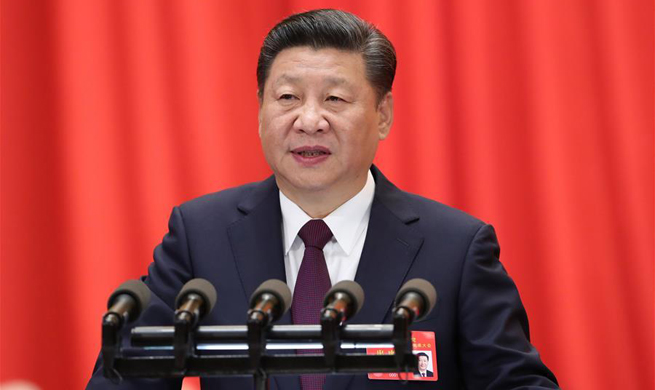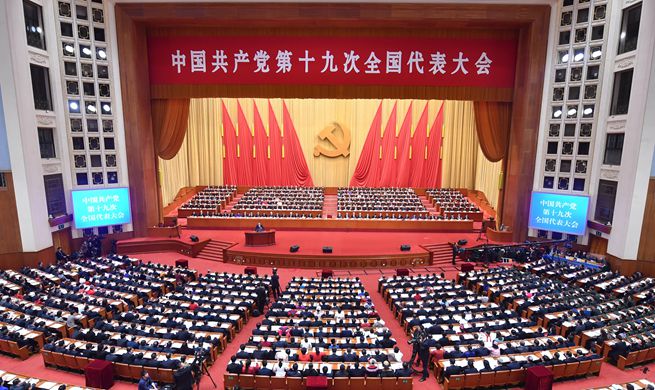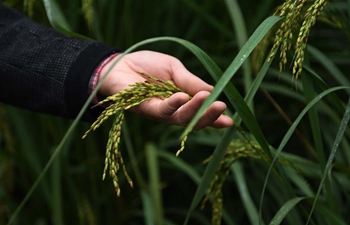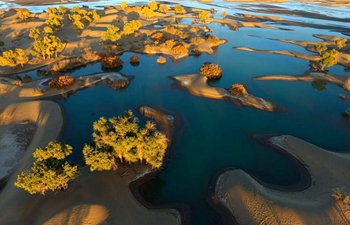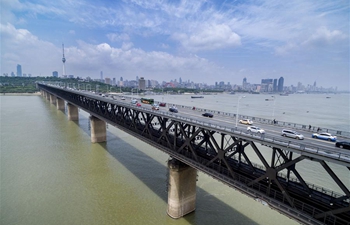CAPE TOWN, Oct. 23 (Xinhua) -- South Africa on Monday launched the 24th Africa Oil Week (AOW), with the aim of promoting sustainable energy in the continent.
The AOW coincided with the Africa Oil and Gas Week Conference taking place in Cape Town, with the participation of energy ministers from African countries. U.S. Secretary of Energy Rick Perry was also taking part in the event.
The AOW is a forum "where we discuss the common future of Africa, particularly for insight on Africa's legislative environment, investor outlook, acreage opportunities, exploration and production developments, technology innovations, industry strategy and forecasts for the coming years," South African Minister of Energy David Mahlobo said at the launch ceremony in Cape Town.
He said the African Union (AU) Agenda 2063 calls on African governments and states to take certain steps now to ensure the continent's growth and sustainable development.
"In this regard, energy is a critical resource and an input element that must be used to propel our economies towards a growth trajectory in the next 50 years," the minister said.
The AOW takes place at a time when there is growing optimism about the potential of Africa's oil and gas development given the sustained increase in crude oil prices.
This bodes well for many of the continent's economies that had suffered when there was a downturn in commodity prices, said Mahlobo.
"I must however stress that net oil importing countries like ourselves have enjoyed the benefit of lower oil prices but were at the same time impacted by the downturn in other commodity prices such as iron ore and platinum group metals," he said.
Mahlobo warned against geopolitical rhetoric which might have an impact on the price of oil other than normal market forces.
Many governments derive the bulk of their revenues from oil sales whilst many state-owned corporations or private firms use this as a political, economic and security tool for influence, he said.
Control and ownership of this natural endowment also controls the revenue collection and allocation, said Mahlobo.
"This also translate into geopolitical clout for some and economic vulnerability for others," he said.
The minister took the opportunity to expound South Africa's energy policy.
"Given South Africa's current socio-economic realities, our development focus and available resources, we have to take a pragmatic approach," said Mahlobo.
South Africa is implementing a energy mix policy by having 30 percent of clean energy by 2025.
By 2030, South Africa will have, amongst other things, adequate supply of liquid fuels to avoid disruptions to economic activity, transport and welfare, according to Mahlobo.
South Africa, he said, is committed to transition to a low-carbon economy, with priority to be given to clean energy alternatives, subject to current technological and cost constraints.
"We are already seeking ways and new technologies to use fossil fuels with minimal carbon emissions, in line with our climate change commitments," said Mahlobo.
He stressed that South Africa recognizes the role of nuclear power in ensuring security of energy supply and meeting the challenge of climate change.
"We promote an energy mix of coal, gas, renewables and nuclear. Each of these options has their role; some of the energy sources are intermittent supply and while others, such as nuclear and coal, are base-load supply," he explained.
South Africa has the possibility of introducing a variety of sources of natural gas which could be economically available within 25-year planning horizon to 2040.
Sources could include extensive expansion in natural gas from shale gas, production from deep water offshore fields and development of regional natural gas pipeline network, according to Mahlobo.
Indigenous and regional gas can play a critical role in growing the economy of the country and the region, the minister said.
The AOW is the meeting place for Africa's upstream oil and gas market. Now in its 24th year, the event brings together governments, national oil companies, investors, corporate players, independents and financiers, giving them a place to network, discuss and share knowledge.




